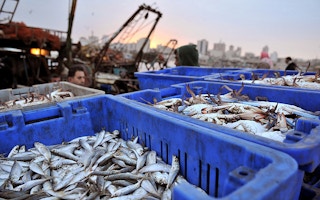World Bank president Robert Zoellick announced on Friday a new global effort that will raise funds to tackle the long-term health of the ocean environment and its resources.
In a keynote speech at The Economist World Oceans Summit at the Capella hotel in Singapore, Mr Zoellick said that the programme, called the Global Partnership for Oceans, would combine the resources and expertise of a network of groups to achieve common goals.
The partnership includes governments, international institutions, businesses, scientists and non-government organisations that are already working to solve the problems of over-fishing, pollution and habitat loss in the world’s oceans.
“We need coordinated global action to restore our oceans to health. Together we’ll build on the excellent work already being done to address the threats to oceans, identify workable solutions, and scale them up,” said Mr Zoellick in a statement.
He added that a group of representatives from NGOs, governments and the private sector met last September to identify specific areas of work for achieving a set of four common targets.
These will help countries make better decisions about ocean and coastal management, pinpoint key areas for investment and promote cooperation between the public and private sectors.
Those targets are:
- To rebuild at least half of the global fish stocks identified as depleted;
- To increase the net benefits of fisheries, which currently lose about US$5 billion each year, to between US$20 and $30 billion;
- To expand the amount of ocean areas designated as marine protected area from less than two per cent currently to five per cent;
- To provide two thirds of the world’s fish using sustainable aquaculture, up from 50 per cent currently.
The partnership has committed to raising an initial fund of at least $300 million, which will be used to help develop policies on ocean management and marine protected areas that attract additional investments.
Mr Zoellick said the fund is meant to leverage new investments of $1.2 billion over the next five years.
Members of the Global Partnership for Oceans, who will hold their first meeting this April in Washington DC, already have significant resources invested in projects on ocean conservation and coastal communities.
NGOs have combined investments of about $100 million a year to raise awareness and implementing conservation projects, for instance. And the Global Environment Facility, an independent organisation that provides grants to developing countries for environmental conservation projects, has invested up to $600 million in coastal and marine projects on pollution reduction and conservation management.
The World Bank had previously committed to investments of $1.6 billion in coastal zone management, fisheries, and marine protected areas.
Aside from additional funding, the World Bank’s role within the new partnership will be to coordinate financing and help with raising awareness. It will also build on its existing projects in related areas, such as fisheries, coastal zone management, marine protected areas, ports, urban development and agriculture.
The World Bank has existing relationships with policy makers and ministers of finance that will be useful for highlighting the need for more sustainable oceans and sharing solutions, noted Mr Zoellick.
One example is the recognition of the economic value the oceans provide.
“Oceans are the home of an under-recognized and under-appreciated ‘blue economy’”, he said, adding that investing in ocean eco-systems resulted in less poverty, more jobs and improved food supply.
According to the World Bank, about 350 million jobs are linked to the oceans through fishing, aquaculture, coastal and marine tourism, and research. And one billion people in developing countries depend on fish and seafood for their primary source of protein.
But fish stocks are under pressure from over-fishing, pollution and habitat degradation. About 85 per cent of ocean fisheries are fully exploited, over-exploited, or depleted.
In coastal areas, eco-systems such as mangroves, wetlands and reefs that protect coastal communities from storms, and provide food and tourism income are under threat as well. The 275 million people that live in these areas are among the most vulnerable to climate change, said Mr Zoellick.
The ocean is central to the climate change issue. Covering more than 70 per cent of the earth, it absorbs carbon dioxide and heat and shapes weather patterns, noted scientists at the two day event, who cautioned that the world understand little about the ocean and the effects of human impacts on it.
“To make our oceans healthy and productive again, we need greater cooperative and integrated action around the globe, so that our efforts add up to more than the sum of their parts,” said Mr Zoellick.

















